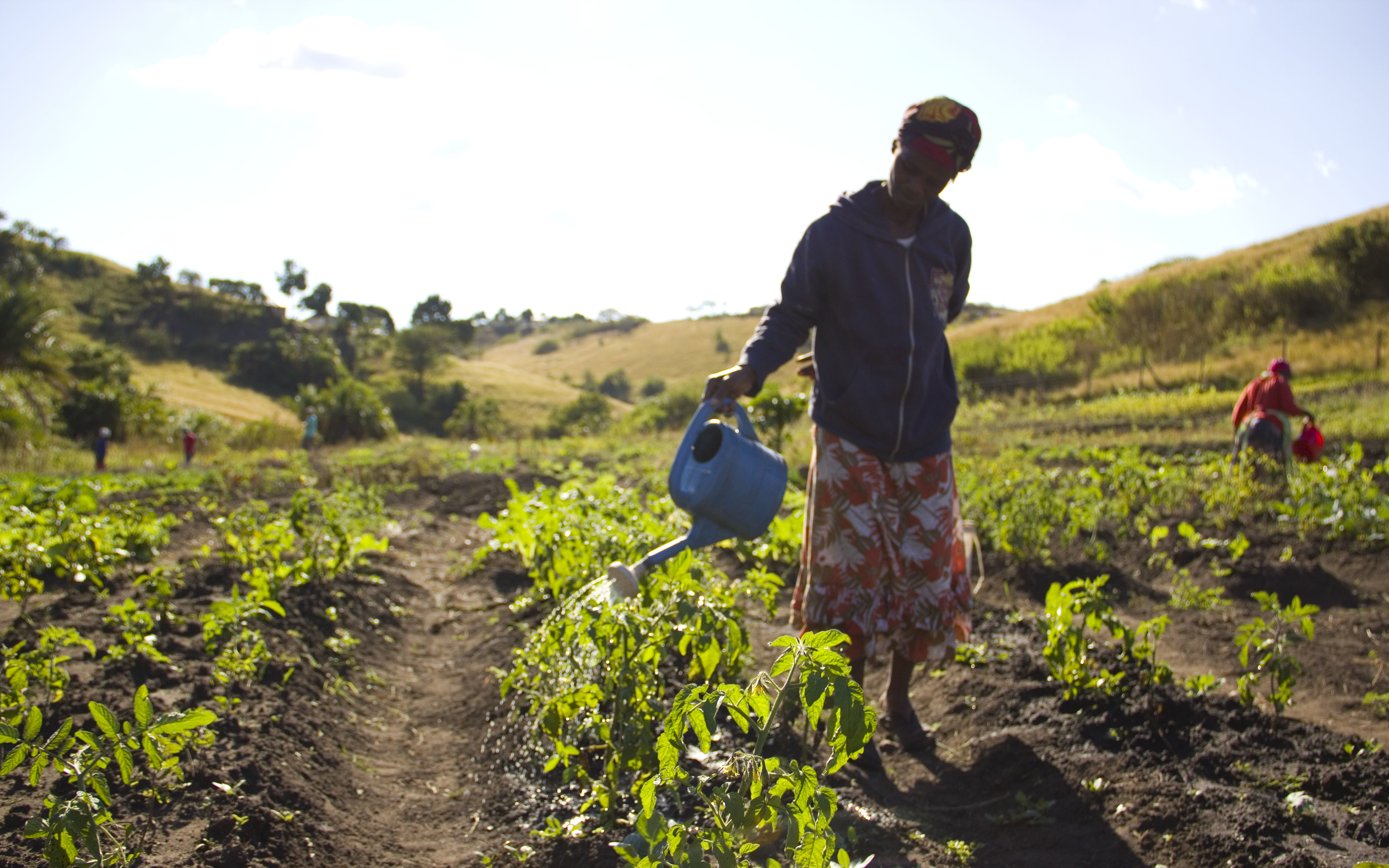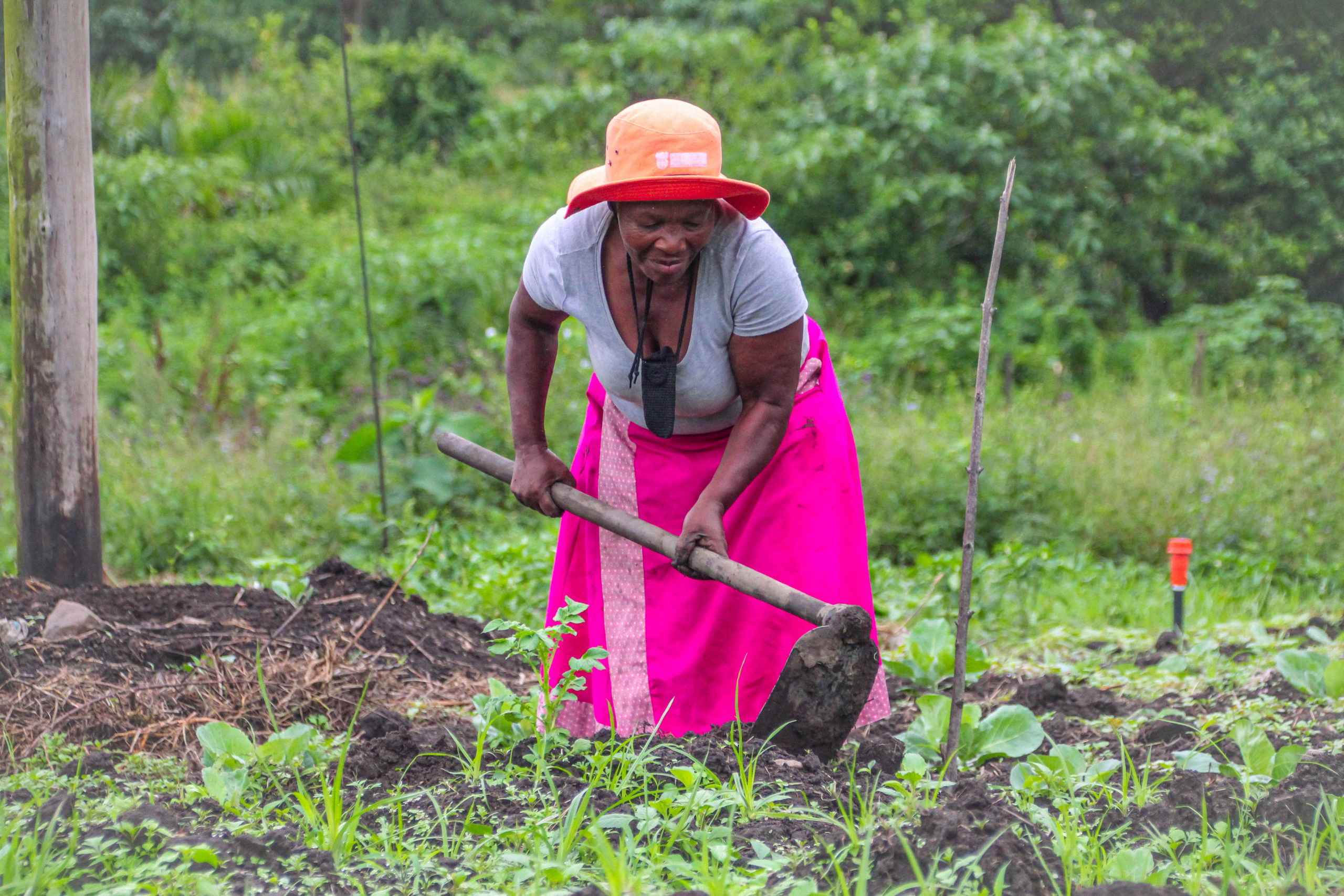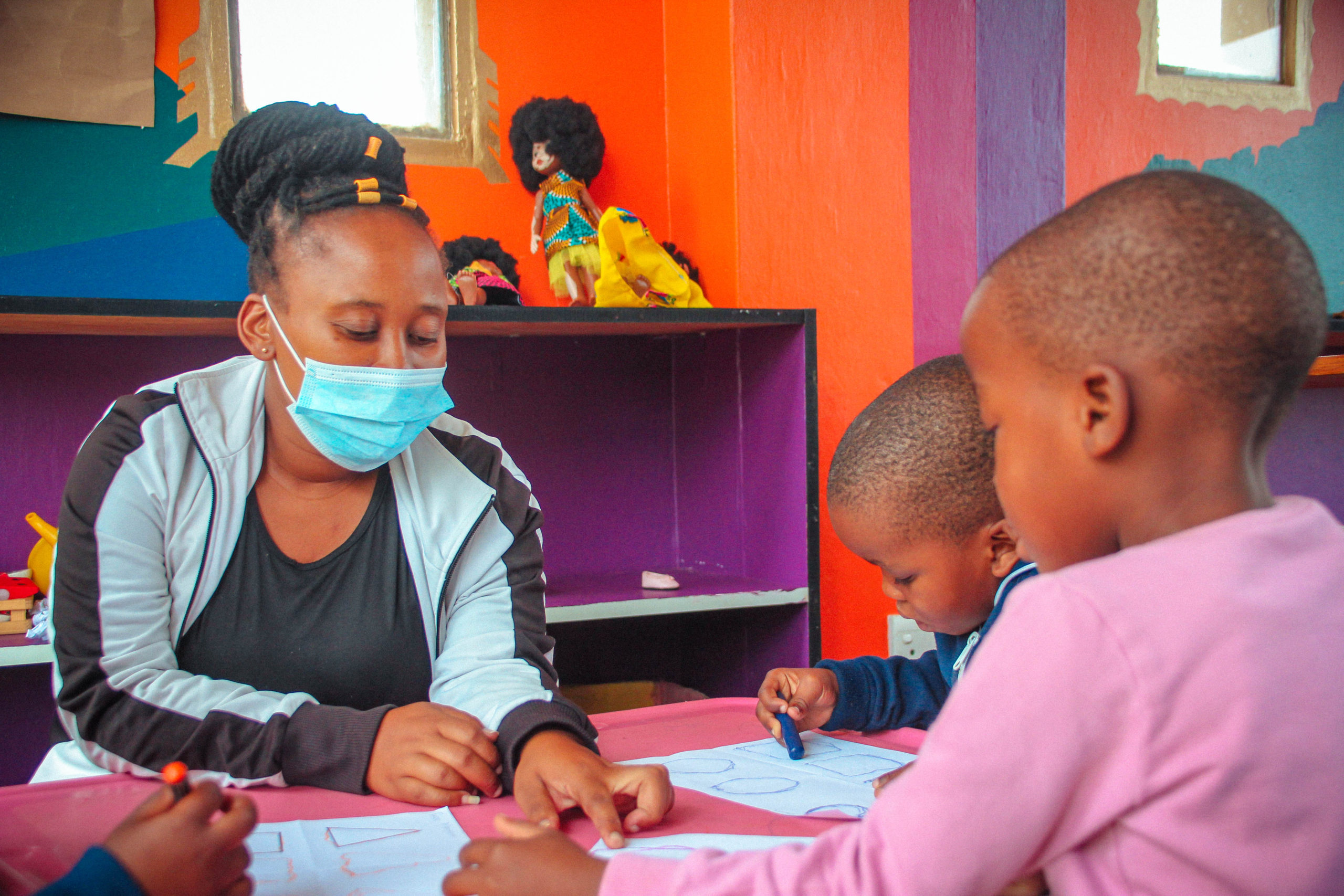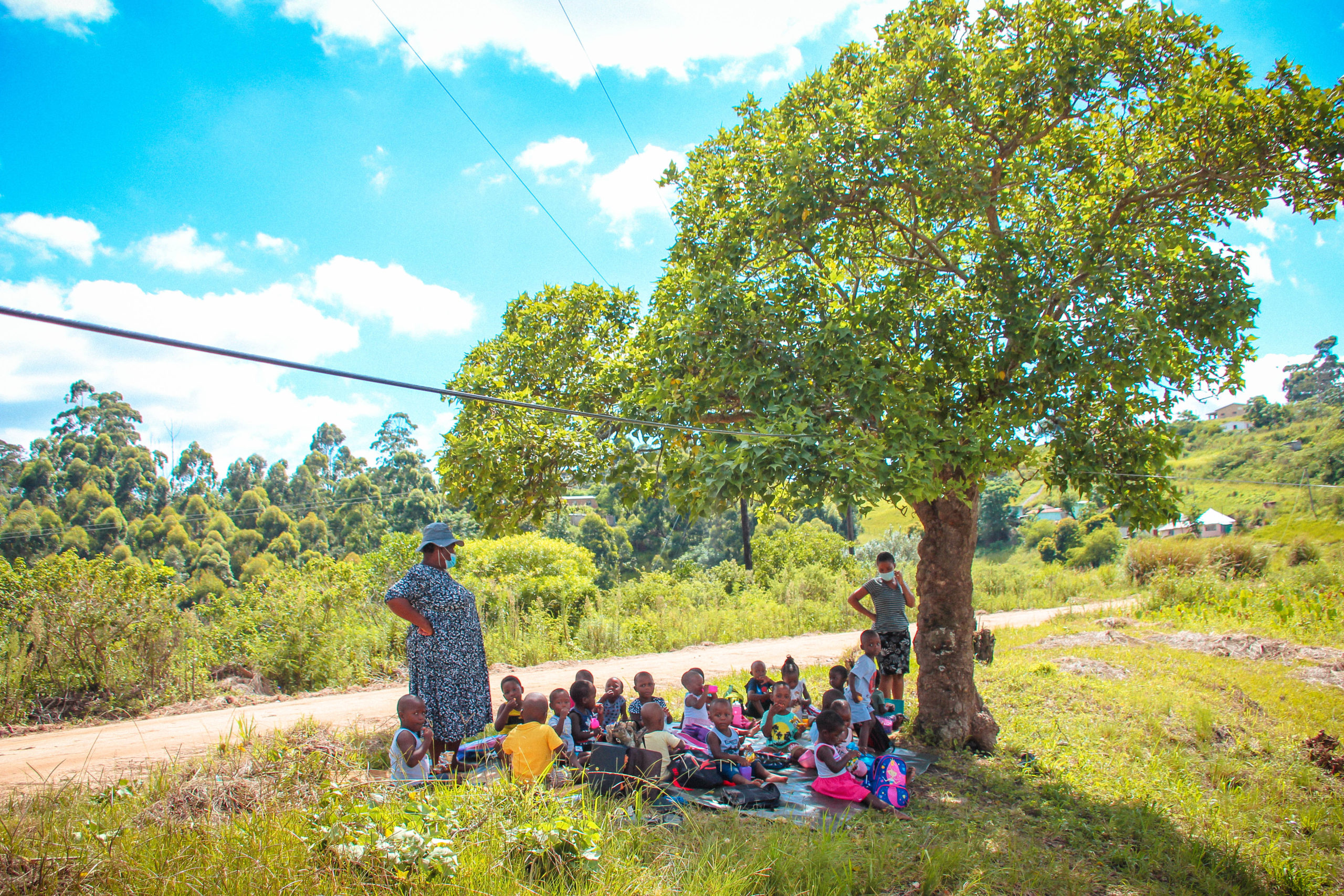The first day of the month in South Africa is pension day. The day when people come from all over to the nearest town to collect their monthly stipends from the government. For many, this is their only income for the next 30 days. For most, this is to not only support themselves but family members as well. In our municipality (Umzumbe) the average household is 5 people. In the community that Thanda works with, the average is 8. And in extreme cases it can be as many as 22.
I was in the supermarket in town on the first of the month last month. In front of me in line at the checkout was a young girl. She had in her cart a pack of polony (bologna), a 2 litre bottle of soda, a loaf of bread, matches, rice and some biscuits. She reached the cashier and slowly handed her each item, checking the balance owed each time. After only two items she glanced down at the few bills in her hand and put the rest of the food to the side. She handed the cashier her money and placed her bologna and bread in a bag.
This breaks my heart every time. She had fewer items than even the maximum for an express line at a grocery store and did not have enough to purchase those few things. After having purchased necessary medicines, and paid back loans, this will likely be her only trip to town for the month.
Approximately 90% of the elderly, particular in the rural areas, receive a state old age pension. The “Older Persons Grant”, given to those over 60, has a current maximum amount given per person of R1,420 a month. R1,440 if you are over 75. That is equivalent to $94. Divided among 8 people is $11.75 per person for the month. While it is possible that some are receiving other government grants as well and as a result have some more income, it is not much more and still indicates a dependency on the government.
According to a survey of South Africans on the old age pension, 75% of the total household income was derived from that pension. After medicine, and food the next biggest expense if servicing debt. Without savings to pay for expenses such as house repairs and furniture, many people in the rural areas are susceptible to loan sharks or so-called micro lenders who charge double the interest rate of a bank. We’ve seen it in our own community. Businesses take advantage of the lack of understanding or language barrier of a person from the community and they take out loans and end up paying for them 5 times over with interest.
Our Agriculture Programmes are fighting this dependency by creating self-sufficiency in households in the community. In the third quarter of 2015, our farmers planted a total of 150 kg and sold a combined total of R6 635. Towards the end of 2015 we started a new system for our agriculture programme using mentors to train and work with the farmers in groups no bigger than 30 farmers per mentor.
Three months later, that same group of farmers planted a total of 4650kg and sold a combine total of R 19311. That is a 3000% increase in amount planted from quarter 3 and a 191% increase in amount sold from quarter 3. We believe it is possible to feed a household without government grants. Farmers working with us are empowered to be self-sufficient by being able to provide nutritious food from their gardens and have an income from their sales. Thanda also guarantees to buy any excess produce the farmers grow, if necessary, to minimize the risk of upscaling their farms. Our after-school programmes reinforce that you can have a fulfilling and sustainable life in this community, without relying on the government or others for support.
Our hope for our work is that our farmers, children and families won’t have to only depend on their grant money to buy food. They won’t have to make an expensive trip all the way to town to buy a loaf of bread and maybe some meat, if there is enough. They will have plenty of fresh, organic vegetables and livestock in their own backyard to feed their families. They will be in control.
Sources:
http://www.hst.org.za/news/south-africa-getting-old-age-pension





